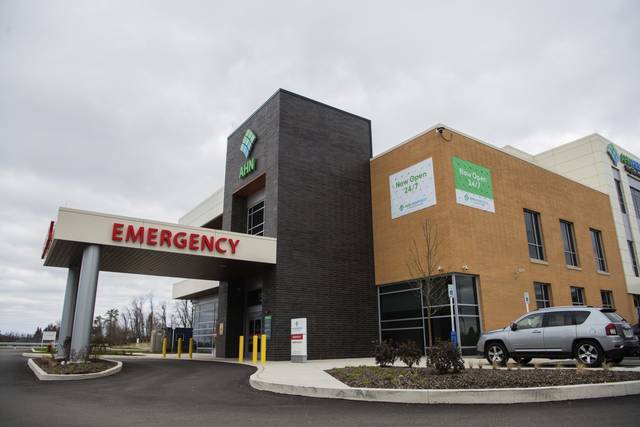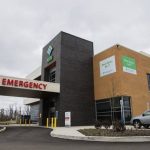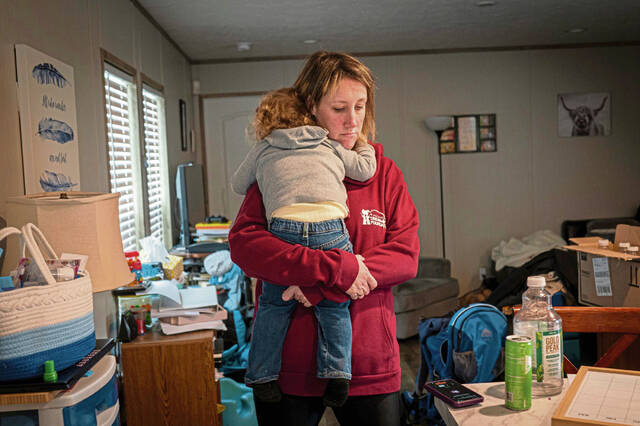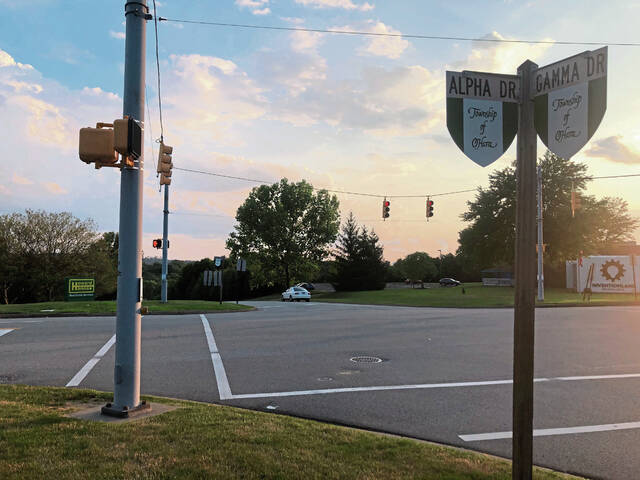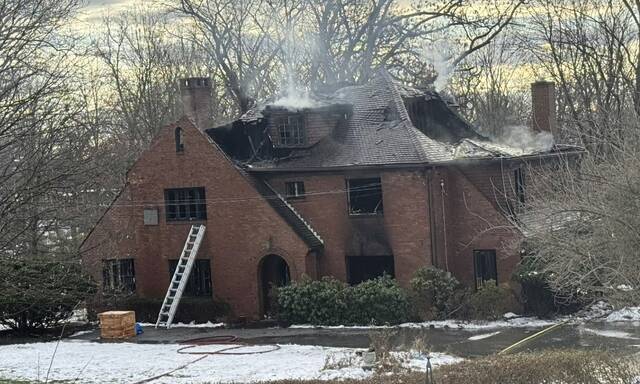The latest surge of covid-19 cases has prompted a 500% increase in hospitalizations when compared to the spring stage of the pandemic, officials from the region’s health care systems said Sunday.
While some hospitals are close to running out of intensive care beds, officials at Allegheny Health Network and UPMC say they are prepared to treat the patients who need it.
As of early Sunday morning, Allegheny Health Network had 270 covid-19 patients across its 13 hospitals — more than four times the highest numbers AHN saw during the initial spring surge, according to spokeswoman Nikki Buccina.
Despite that, AHN has adequate capacity to care for patients, including those requiring intensive care, Buccina said.
“We have been anticipating a fall pandemic surge for several months,” Buccina said. “More specifically, AHN has adequate resources in place for general and critical (ICU) care of covid patients to meet current and anticipated needs, but we are closely monitoring this situation daily.”
Also on Sunday, Dr. Donald Yealy, chair of emergency medicine at UPMC and the University of Pittsburgh, said there were 921 people hospitalized with covid-19 across the hospital system. In Allegheny County, there were 321 patients hospitalized with covid-19.
“With the first wave, we would have peaked somewhere around 140 and 150 patients across the entire system,” Yealy said. “During the second wave in the summer, it would have been closer to 180. This is much higher than that.”
State health professionals have warned people that recent record high case counts could overwhelm hospitals.
As of Saturday, there were 2,904 patients hospitalized with covid-19 in the state, according to data provided by the state Department of Health. Of those, 864 were in an intensive care unit.
Some UPMC hospitals are nearing their intensive care capacity, Yealy said.
But the benefit of having a large health care system is that officials can create new intensive care settings or move patients to other facilities that have intensive care availability, he said.
“Am I more concerned now because of the higher numbers? Yes. But not to the point that I’m fearful that we’re not able to meet the need,” Yealy said. “We’ve been able to do that by creatively thinking about how can we help an individual site and how can we use what’s nearby in the region. It requires lots of planning and lots of execution of those plans.”
“Overall, we could double the intensive care unit capacity if it was needed,” Yealy said. “It’s not needed right now. But we could do that.”
The number of covid-19 patients who require a breathing machine or intensive care has decreased since the spring because of an improved understanding of how covid-19 works and the changing weather, Yealy said.
Allegheny Health Network, UPMC and Excela Health have made changes to their visitation policies in response to the surge.
Starting Tuesday, Dec. 1, AHN visitors are only allowed to see patients in certain units or circumstances.
Those include:
• Labor and Delivery
• Neonatal Intensive Care Units (NICU)
• Pediatrics
• End of Life Care
• Patients who have an intellectual, developmental or cognitive disability, communication barrier, or behavioral concerns or those with a physical disability
• Patients being discharged from hospitals to help communicate their discharge instructions
Visitors to the exception areas must be 18 or older and have a valid ID. Visitors will be screened for covid-19 symptoms before entering a facility.
AHN will allow one visitor to accompany patients undergoing surgical or emergency care. Those visitors will be asked to wait in their cars or in a designated socially distanced area until further instructed by an AHN staff member. Patients who are undergoing diagnostic testing or ambulatory care may also be permitted a visitor if special assistance is required for them to receive the necessary care.
“With regard to elective procedures, we are currently moving forward in a very careful and prudent fashion to safely care for our patients, but cognizant of the potential need to adjust our operations accordingly in response to the evolving impact of the pandemic,” Buccina said.
Changes to UPMC’s visitation policy will take effect Monday. Only patients, identified and approved support persons, staff and essential vendors will be allowed in the facilities.
Support people must be 18 or older.
“We think it’s important for people who are ill and recovering to have someone that is there, but we have to respect the needs of not only keeping safe our health care workers, but other people in the hospital,” Yealy said of the visitation policy. “We’re trying to maintain both of those positives.”
Yealy stressed it’s important for people to go to the hospital for needed care, such as cancer screenings, or for ongoing care for underlying conditions such as heart disease or high blood pressure. UPMC is still performing all medical procedures.
“All of your health care is important; it’s not just about covid,” Yealy said. “Covid is a real threat, but so are all those conditions that were here before and will be here after.”
Excela Health updated its visitor policy to say, effective Wednesday, Nov. 25, no visitors are permitted in the inpatient, outpatient or emergency department areas.
One visitor will be permitted for patients under 18; people with disabilities or other impairments; and for labor and delivery. Anyone visiting labor and delivery should be prepared to stay for the duration of care, Excela said in a statement.
Exceptions could potentially be made for emergency and end-of-life care. All exceptions must be approved by the department manager or nursing supervisor.


